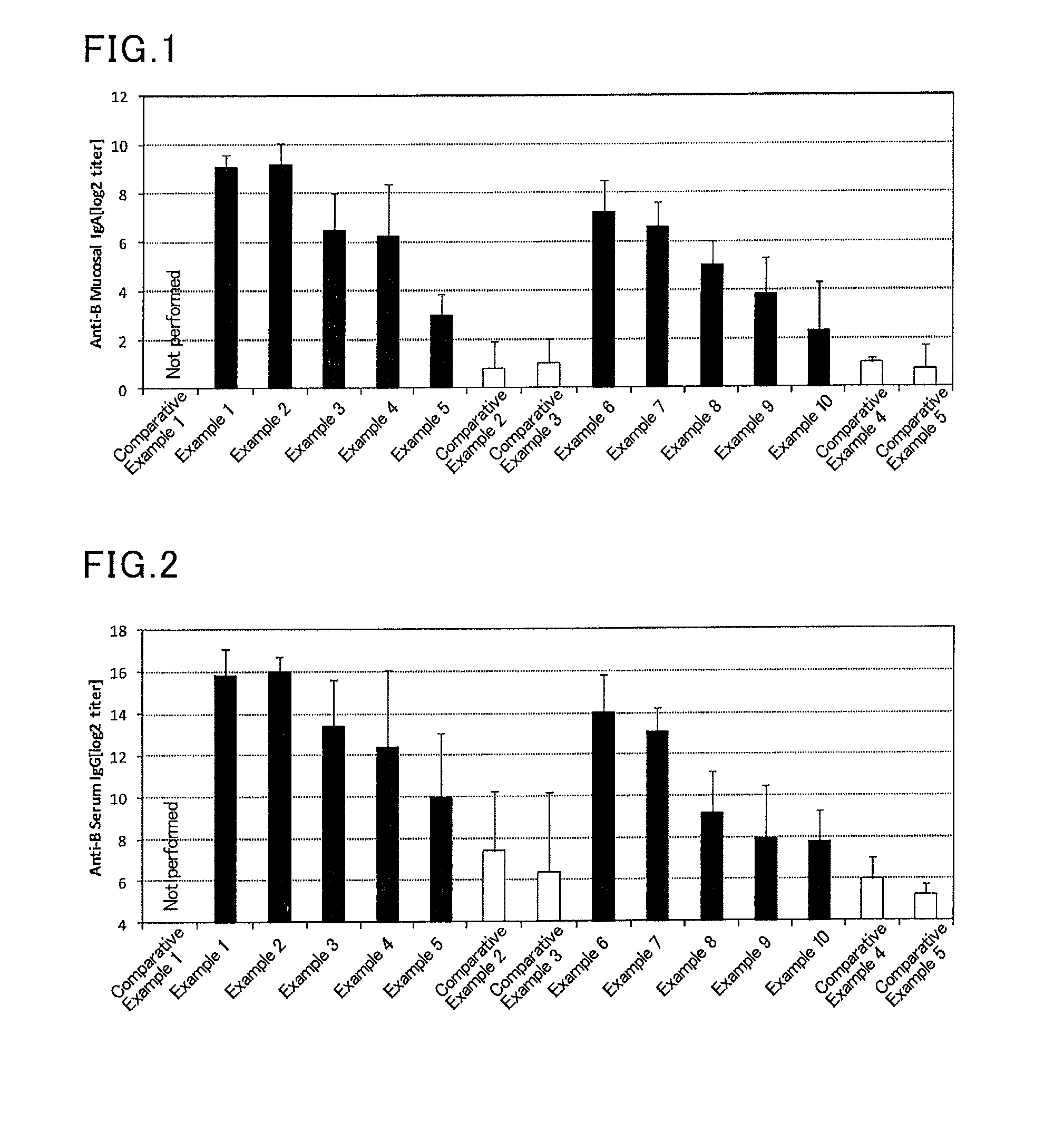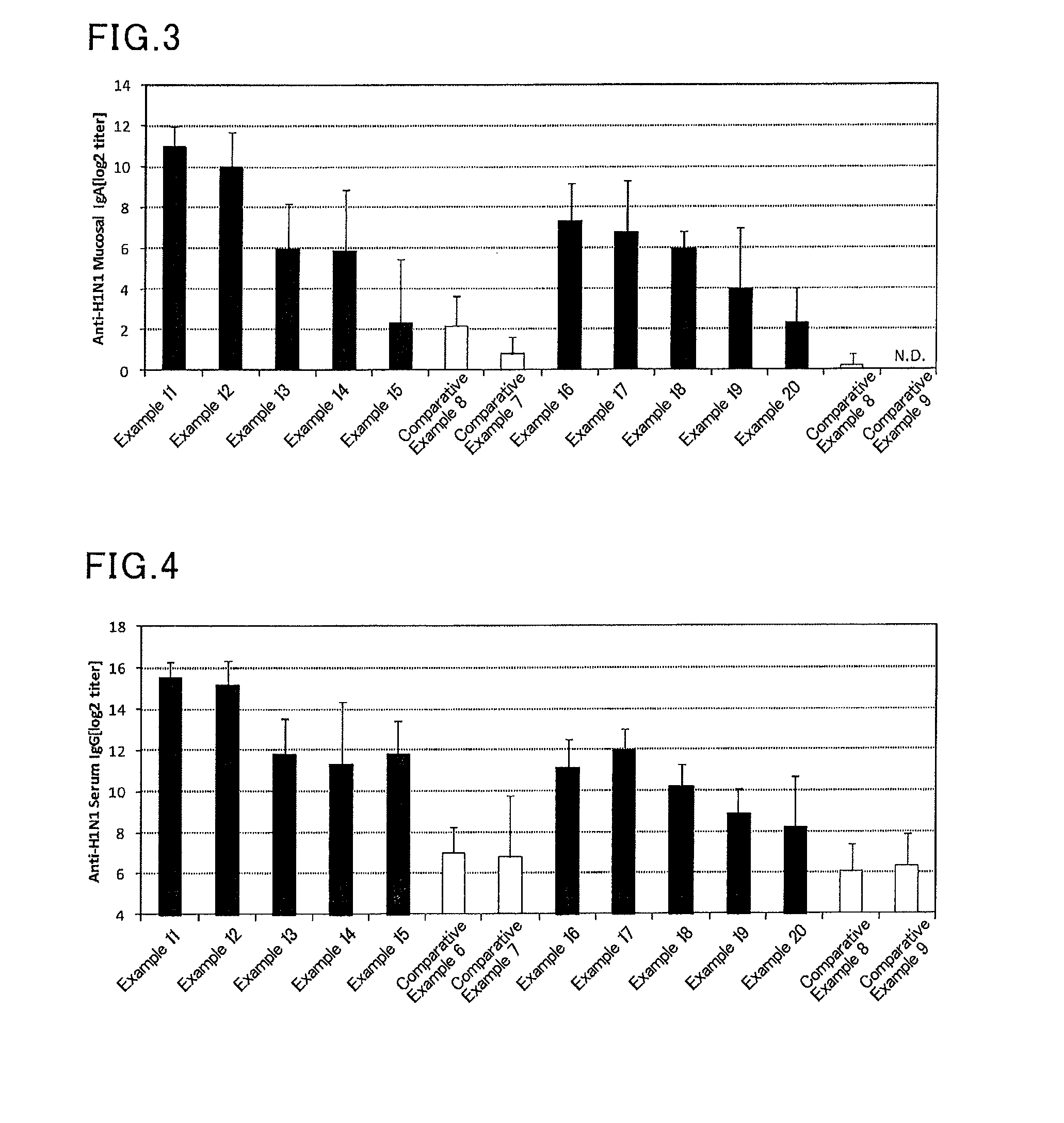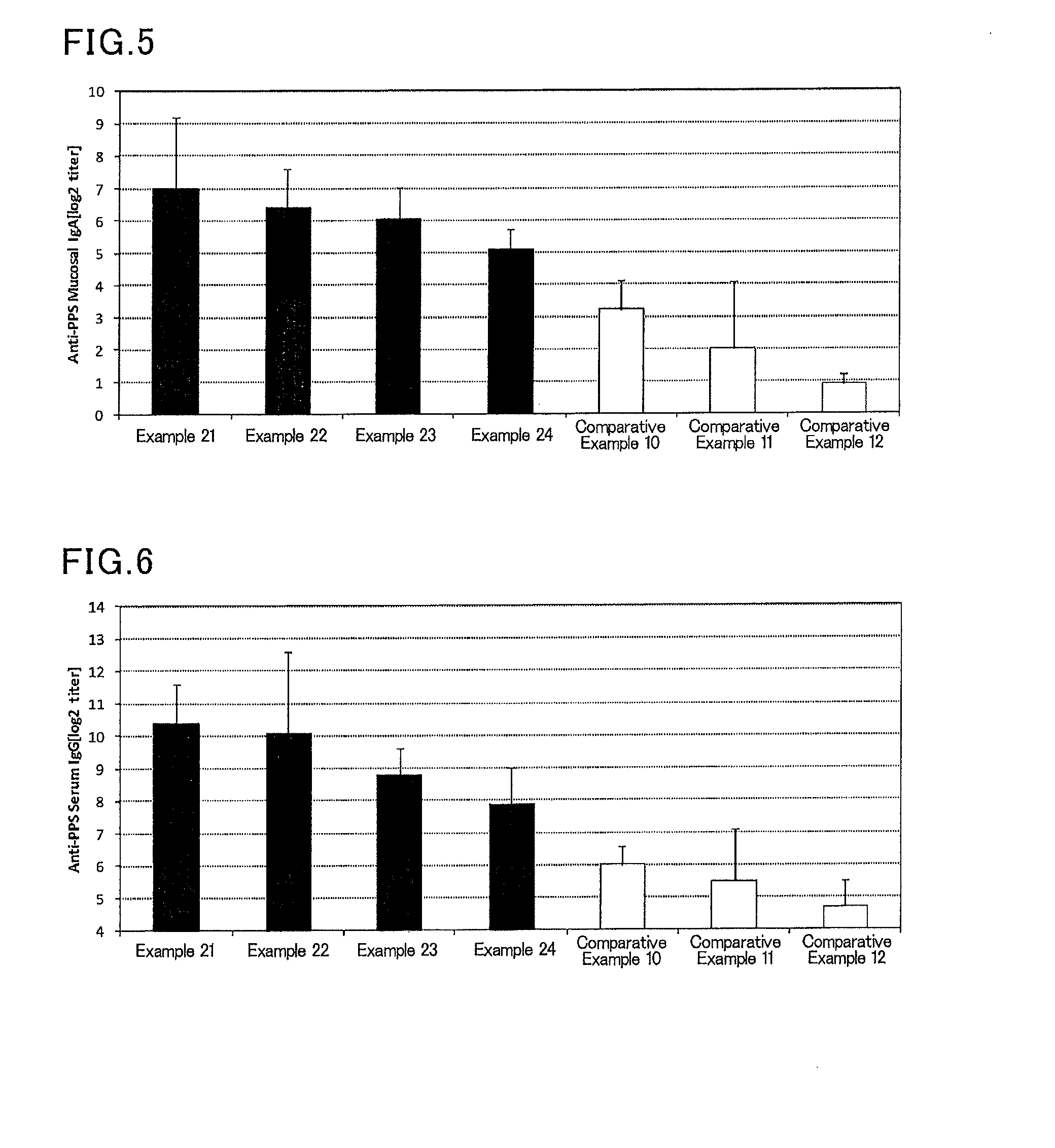Mucosal vaccine composition
a technology of mucosal mucous membrane and mucosal antibody, which is applied in the direction of dsrna viruses, immunological disorders, antibody medical ingredients, etc., can solve the problems of difficult prevention, high possibility of severe side effects, and difficulty in avoiding affection, so as to achieve safe and effective mucosal immune response
- Summary
- Abstract
- Description
- Claims
- Application Information
AI Technical Summary
Benefits of technology
Problems solved by technology
Method used
Image
Examples
examples 1 to 10
, Comparative Examples 1 to 5
[0107]An influenza vaccine antigen-containing solution (B / Wisconsin / 1 / 2010, produced by The Research Foundation for Microbial Diseases of Osaka University) (445 μg / mL), and a solution of a lipopolysaccharide derived from Pantoea agglomerans (available from Institute of applied technology for innate immunity) (50 mg / mL) were prepared to give doses in each group of table 1, and then a phosphate buffer (available from Nacalai Tesque) was added to prepare 300 μL of a vaccine composition. For example, in Example 1, after adding 22.5 μL of the influenza vaccine antigen-containing solution, and 20 μL of the solution of a lipopolysaccharide derived from Pantoea agglomerans, a phosphate buffer was added to make the total amount 300 μL. For other examples and comparative examples, vaccine compositions were prepared to have contents corresponding to the doses by appropriate dilution, and in Comparative Example 5, only a phosphate buffer (available from Nacalai Tesq...
examples 11 to 20
, Comparative Examples 6 to 9
[0111]Vaccine compositions corresponding to Table 2 were prepared in the procedure based on that in Examples 1 to 10 and Comparative Examples 1 to 5 except that the influenza vaccine antigen-containing solution was changed from B / Wisconsin / 1 / 2010 to A / California / 07 / 2009 (H1N1, produced by The Research Foundation for Microbial Diseases of Osaka University) (801 μg / mL). For example, in Example 11, after adding 12.5 μL of an influenza vaccine antigen-containing solution and 20 μL of a solution of a lipopolysaccharide derived from Pantoea agglomerans, a phosphate buffer was added to make the total amount 300 μL.
[0112]Six mice (female BALB / C mice aged 8 weeks, Japan SLC, Inc.) were anesthetized, and 30 μL of the prepared vaccine composition was sublingually administered to each mouse. After one week from the administration, the mice were anesthetized again, and 30 μL of the prepared vaccine composition was sublingually administered to each mouse. After one we...
examples 21 to 24
, Comparative Examples 10 to 12
[0113]Vaccine compositions corresponding to Table 3 were prepared in the procedure based on that in Examples 1 to 10 and Comparative Examples 1 to 5 except that the vaccine antigen was changed from influenza to a pneumococcal capsular polysaccharide-containing solution (Pneumovax NP, available from MSD K.K.) (1150 μg / mL). For example, in Example 21, after adding 8.7 μL of a pneumococcal capsular polysaccharide-containing solution and 2 μL of a solution of a lipopolysaccharide derived from Pantoea agglomerans, a phosphate buffer was added to make the total amount 300 μL.
[0114]Six mice (female BALB / C mice aged 8 weeks, Japan SLC, Inc.) were anesthetized, and 30 μL of the prepared vaccine composition was sublingually administered to each mouse. After one week from the administration, the mice were anesthetized again, and 30 μL of the prepared vaccine composition was sublingually administered to each mouse. After one week from the second administration, a ...
PUM
| Property | Measurement | Unit |
|---|---|---|
| mass ratio | aaaaa | aaaaa |
| mass ratio | aaaaa | aaaaa |
| diameter | aaaaa | aaaaa |
Abstract
Description
Claims
Application Information
 Login to View More
Login to View More - R&D
- Intellectual Property
- Life Sciences
- Materials
- Tech Scout
- Unparalleled Data Quality
- Higher Quality Content
- 60% Fewer Hallucinations
Browse by: Latest US Patents, China's latest patents, Technical Efficacy Thesaurus, Application Domain, Technology Topic, Popular Technical Reports.
© 2025 PatSnap. All rights reserved.Legal|Privacy policy|Modern Slavery Act Transparency Statement|Sitemap|About US| Contact US: help@patsnap.com



